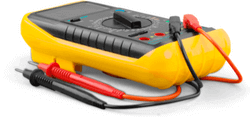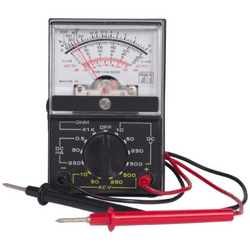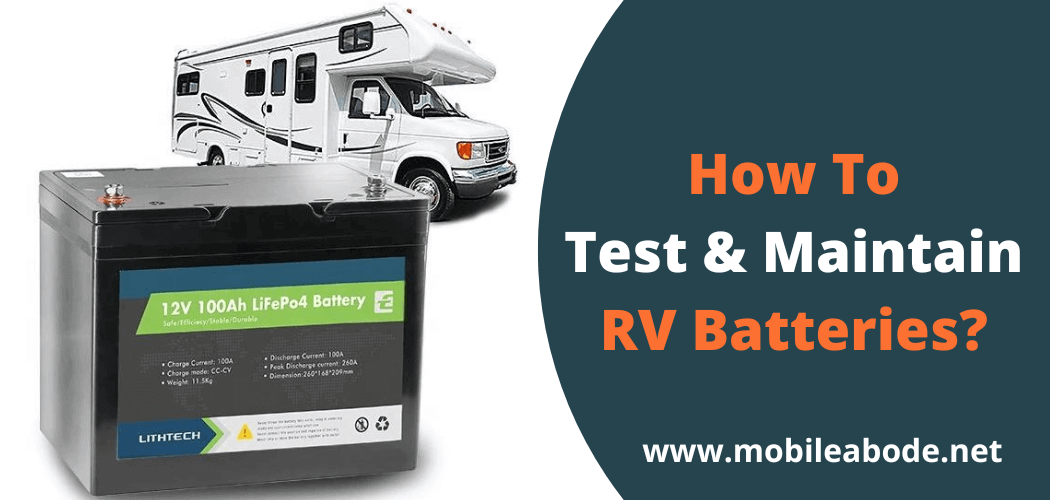If you’re an RV enthusiast, then you already know the importance of having a reliable battery system. Not only do they provide power to your appliances and gadgets, but they also act as a backup in case of an emergency.
While it’s generally recommended that you have more than one battery bank, it’s still important to test and maintain them regularly. Here are a few tips on how to do just that.
Battery maintenance is important for the overall lifetime of your battery. By following a few simple steps, you can test and maintain your RV batteries to ensure they are working at their best.
In this blog post, we will discuss how to properly test your RV batteries and what you should do if they are not performing as expected. We will also provide tips on how to extend the life of your batteries. Read on for more information!
What Is Deep Cycle RV Battery And What Are Its Uses?
A deep cycle RV battery is a lead-acid battery that is designed to be discharged and recharged repeatedly. It is typically used in RVs and campervans to power appliances and lights.
Deep cycle batteries are different from car batteries because they are designed to be discharged and recharged many times. Car batteries, on the other hand, are designed to provide a large amount of power for a short period and then be recharged.
Why we need to test RV batteries?
There are a few reasons why it is important to test your RV battery regularly.
- It allows you to identify any potential problems early on. If there is an issue with your battery, it is better to catch it sooner rather than later.
- Testing your RV battery helps you to keep track of its performance over time. This information can be helpful if you ever need to replace your battery.
- Finally, regular testing helps to ensure that your RV battery is always in good condition and ready to use when you need it.
3 Proven Ways To Test RV Batteries
There are a few different ways to test your RV batteries. The most common method is to use a voltmeter. You can also use a hydrometer or a load tester.
1) Voltmeter

A voltmeter is the most common way to test an RV battery. To use a voltmeter, simply attach the positive lead to the positive terminal of the battery and the negative lead to the negative terminal. The voltmeter will then display the current voltage of the battery.
2) Hydrometer
A hydrometer is another common way to test an RV battery. To use a hydrometer, simply remove the cell caps from the battery and insert the hydrometer into each cell. The hydrometer will then float on the surface of the battery acid and measure the specific gravity.
3) Load Tester

A load tester is a more advanced way to test an RV battery. To use a load tester, simply connect it to the battery and turn it on. The load tester will then place a load on the battery and measure the voltage.
No matter which method you use, it is important to test your RV battery regularly. By doing so, you can identify any potential problems early on and keep your battery in good condition.
How to apply Load Test on Deep Cycle Batteries?
This is a test that measures the capacity of the battery and how well it can hold a charge.
- To load test your battery, you will need a voltmeter and an amp meter.
- First, disconnect your RV from all power sources and turn off all lights and appliances.
- Next, connect the voltmeter to the positive and negative terminals of your battery.
- Then, connect the amp meter in series with a load (such as a light bulb) between the positive and negative terminals of your battery.
- Finally, turn on the load and measure the voltage across the terminals of your battery.
The voltage should remain above 11 volts for a 12-volt battery and above 22 volts for a 24-volt battery. If the voltage drops below these levels, your battery is not able to hold a charge and may need to be replaced.
It is important to note that load testing should only be done by a professional. Incorrect load testing can damage your battery.
Maintain Your RV Batteries For Longevity
How to Maintain RV batteries?
There are a few things you can do to extend the life of your RV battery.
- Keep it clean and free of corrosion. This will help to prevent any damage to the battery terminals.
- Avoid overcharging your battery. This can damage the battery cells and shorten their lifespan.
- Avoid deep discharging your battery. This can also damage the battery cells and shorten their lifespan.
- Finally, store your RV battery in a cool and dry place when it is not in use. This will help to prevent any damage from heat or moisture.
By following these simple tips, you can keep your RV battery in good condition and extend its lifespan. Regular testing and maintenance are the keys to a long-lasting battery.
Also Read: How Long Will RV Fridge Run On Battery?
Few Tips to Prolong Life of Deep Cycle Battery?
There are a few things you can do to prolong the life of your deep cycle battery.
- Avoid subjecting your battery to extreme temperatures. Both high and low temperatures can shorten the lifespan of your battery.
- Avoid overcharging or deep discharging your battery. Both of these can damage the battery and shorten its lifespan.
- Keep your battery clean and free of any corrosion. This will help to ensure good electrical contact and prevent premature failure.
- Finally, have your battery tested regularly by a professional. This will allow you to identify any problems early on and take steps to correct them.
By following these simple tips, you can prolong the life of your deep cycle battery and get the most out of it.
Related Topic: Size Battery Best For Travel Trailer
FAQs
How do I know if my deep cycle battery is healthy?
There are a few ways to tell if your deep cycle battery is healthy.
- Check the voltage of the battery with a voltmeter. A healthy battery should have a voltage of 12.6 volts or higher.
- Check the specific gravity of the battery with a hydrometer. A healthy battery should have a specific gravity of 1.265 or higher.
- Check the capacity of the battery with a load tester. A healthy battery should be able to provide at least 80% of its rated capacity.
- Finally, check the condition of the battery terminals and connections. They should be clean and free of any corrosion.
If you notice any of these problems with your deep cycle battery, it is important to have it tested by a professional. They can help you determine the cause of the problem and recommend the best course of action.
What should I do if my deep cycle battery is not performing as expected?
If you notice that your deep cycle battery is not holding a charge as well as it used to or if it is not lasting as long as it used to, there are a few things you can do.
- Check the connections between the battery and your RV. Make sure they are tight and free of any corrosion.
- Have your RV battery tested by a professional. They can identify any issues and recommend the best course of action.
- Finally, if your RV battery is more than 3 years old, it may be time to replace it.
By following these simple tips, you can keep your deep cycle battery in good condition and extend its lifespan. Regular testing and maintenance are the keys to a long-lasting battery.
How often should you test your RV battery?
It is generally recommended that you test your RV battery at least once a month. However, if you are using your RV frequently or if you live in a hot climate, you may need to test it more often.
How long should a deep cycle battery last?
With proper care and maintenance, a deep cycle battery can last for 3-5 years. However, if the battery is not properly cared for, it may only last for 1-2 years.
Final Words
Testing:
A battery tester will test the voltage of your batteries and tell you how much charge is left in them.
- You can also use a hydrometer to check the specific gravity of the electrolyte in each cell. This will help you determine if there is enough water in the cells and whether or not they need to be refilled with distilled water. If you have an inverter, you can test your batteries by running a load on them.
- To test your RV batteries, you may use a voltmeter. Voltage readings should be taken after the battery has been resting for at least four hours and no load is drawing from it. Measure voltage across each cell of the battery (should read 12.6 volts or more), then take the average of those numbers.
Compare this number to the chart in your owner’s manual to see if your battery is still within specifications. If not, you may need to replace them soon.
Maintaining:
To maintain your RV batteries, make sure that they are always fully charged when not in use and store them in a cool place (ideally 50 degrees Fahrenheit or below). Avoid allowing them to discharge completely, as this can damage their cells permanently.
Make sure the terminals are free from corrosion and that there is no sign of leakage around the seals. Add distilled water as needed to bring the cells up to full charge. Use a battery charger periodically to top off their charge and extend their lifespan.
Replacing:
If you notice that your RV batteries are not holding a charge as well as they used to or if they are not lasting as long as they used to, it may be time to replace them.
Be sure to recycle your old batteries properly and dispose of them according to local regulations. When shopping for new batteries, make sure to get ones that are compatible with your RV’s electrical system.
Deep cycle batteries are an important part of any RV’s electrical system. By following these simple tips, you can keep yours in good condition and extend their lifespan.

